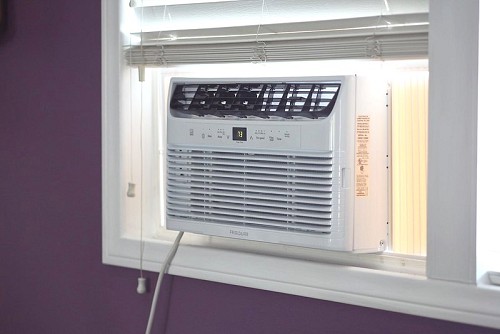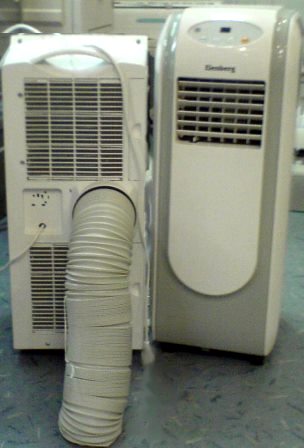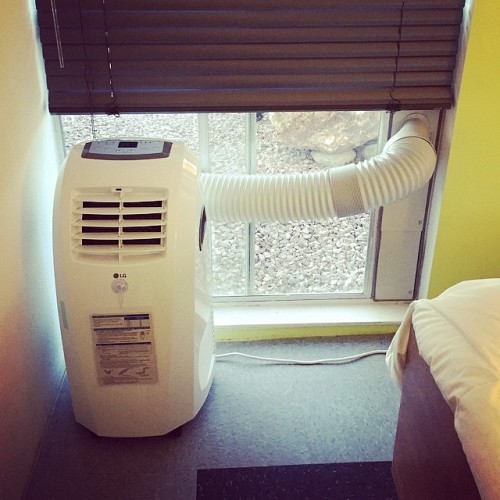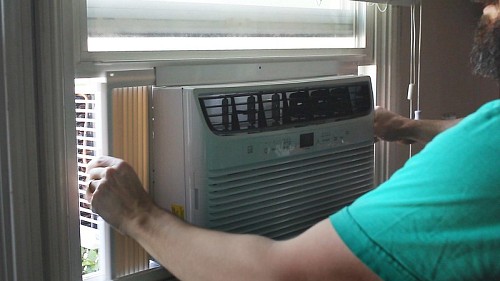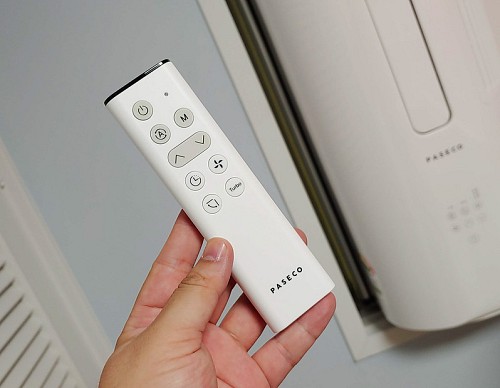Portable Vs Window Air Conditioner -- What Is The Best Choice?
 Not ready to invest in central AC? Consider a portable or window air conditioner instead. Both are easy to install, don’t require ductwork, and can be taken along when you move.
Not ready to invest in central AC? Consider a portable or window air conditioner instead. Both are easy to install, don’t require ductwork, and can be taken along when you move.
But these two cooling systems are not identical. So before you buy, investigate the differences to decide which will suit you best. Here are the pros and cons of portable vs window air conditioners.
Window Air Conditioner -- Pros
Better cooling capability. Check the BTU rating of the machine you’re considering – the higher the BTU, the greater its cooling capacity. TIP: If you’re cooling one average-sized room (rather than a large open-plan area), buying the most powerful machine is a mistake. Have an expert calculate optimal size.
Space-saving. It does not occupy valuable floor space.
Bells and whistles. Many window ACs come with accessories such as a remote, digital thermostat, and programmable timer.
Window Air Conditioner – Cons
Complicated installation. You'll need to hire a professional for window AC installation. You’ll also need a conveniently placed window. Failing that, you’ll have to invest in a “through-the-wall” air conditioning unit, and cut a hole in your wall for mounting.
Fit. Window air conditioners are manufactured to work with double-hung windows, so consult an HVAC pro for solutions if you have another window style. Ditto if the unit you want won’t fit into the available window space.
Cost. Besides the cost of professional installation, the purchase price for this appliance is higher than that of a portable. What's more, because window AC draws a lot of power, you might need to add a dedicated electrical circuit.
Portable Air Conditioner – Pros
Cost. You’ll pay a lower initial purchase cost for a portable vs window air conditioner.
Simple to install. You can easily do it yourself to save on air conditioning installation cost. Portables are convenient for remodeled spaces such as finished attics or garages, as well as areas that need cooling only occasionally, like guest rooms.
Easily movable. Its light weight and wheels allow flexible positioning. A portable A/C may be moved to any room, as needed. You can also easily stow it in a closet or storage room for the winter.
Doesn’t protrude outdoors. Many homeowners association and condo committee regulations ban air conditioning with parts that protrude outside your window.
Multi-tasking. One appliance may combine 3 functions: cooling, dehumidification, and fan. Some also offer heating.
Portable Air Conditioner – Cons
Venting. Portable air conditioning has to be vented outdoors with a special hose, which traditionally exhausts hot air via a window. However, recent models offer options such as venting through an exterior door or even your ceiling.
Hassle. An inexpensive unit, as it dehumidifies the air, collects condensate in a container which must be either emptied daily or piped outdoors. Upscale portable ACs are more user-friendly; their exhaust hose vents the moisture outside.
Limited cooling. A portable AC is typically capable of cooling 500-700 square feet maximum.
Save Money On Air Conditioning
When considering a portable vs window air conditioner, keep in mind that either can save you money by supplementing a central air conditioning system. Cool a particularly hot room with a small energy-smart window or portable AC, and go easy on the pricier central air.
Add a ceiling fan to circulate the air cooled by your portable or window air conditioner and you’re really saving energy and money.
Get the most from your AC. Ensure that the flow of cool air isn’t blocked by window treatments or furniture.
Repair cracks, insulate, and weatherstrip for energy-efficient, cheaper heating AND cooling.
Air Conditioner Tips
A portable or window air conditioner is a convenient retrofit in a home without ductwork. Another possibility is mini-split air conditioning.
Mini air conditioning is often loud. This is not necessarily a portable vs window air conditioner issue, but depends on the individual make and model. If you’re noise-sensitive, do some advance research to find quiet models. And once the AC’s installed, regular maintenance (cleaning fins and tightening screws) will help keep it quiet.
Before your window air conditioner installation, decide whether to leave it in place all winter. If so, installation should include an exterior weather-protective cover. Otherwise, plan to take the AC down every fall (a 2-person job) and find a storage spot.
Laura Firszt writes for networx.com.
Looking for a Pro? Call us (866) 441-6648

Heating & cooling Average Costs
HVAC Contractors Experiences

Our Ceiling Fan Journey

My HVAC Installation: A Match Of The Right Contractor And The Right Price

